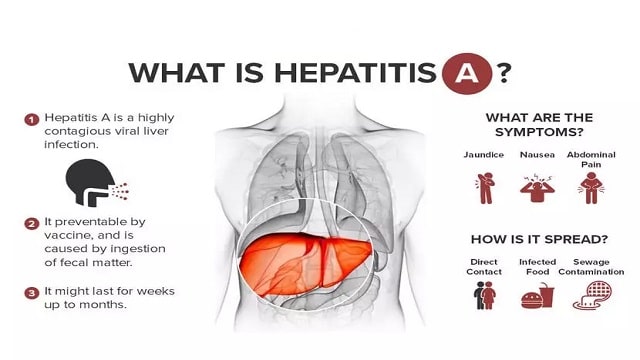Giving the hepatitis A vaccine can reduce a person’s risk of being infected with the hepatitis A virus. The way it works is by making the immune system recognize this virus, so that when the virus attacks, the body can immediately fight it.
Hepatitis A (HAV) is an inflammation of the liver caused by infection with the hepatitis A virus. Transmission of hepatitis A is through the fecal-oral route, the virus enters through the mouth through food or drink that has been contaminated with the patient’s feces.
This disease can be prevented in several ways. One of them is the administration of the hepatitis A vaccine, which will stimulate the body’s immune system to produce antibodies against the hepatitis A virus. This vaccine contains the hepatitis A virus which has been inactivated and is administered by injection into the upper arm muscle.
The Importance of Giving Hepatitis A Vaccine
Hepatitis A vaccine needs to be given twice, with a distance of 6-12 months. The types of vaccines that are commonly given are hepatitis A vaccines and combination vaccines for hepatitis A and B. Hepatitis A vaccination is not a mandatory immunization, but it is still recommended to be given, especially to:
Toddler _ _
The first hepatitis A vaccine should be given when the child is 2 years old, then the second dose can be given 6-12 months later.
People planning to travel
People who plan to travel to areas with high cases of hepatitis A are advised to get vaccinated against hepatitis A in advance. The first dose of the hepatitis A vaccine can be given as soon as possible after planning the trip.
People who are susceptible to viral infections
Hepatitis A vaccine injections also need to be given to people with chronic liver disease, men who have sex with the same sex, drug users, and people with weakened immune systems.
Groups of people who are at risk for infection with the hepatitis A virus, such as veterinarians or nurses, scientists working in hepatitis A research laboratories, and health workers, are also required to receive the hepatitis A vaccine.
Safety of Hepatitis A Vaccination for Pregnant Women
Until now, it has not been confirmed that the administration of the hepatitis A vaccine to pregnant women is completely safe. However, it is still possible to give this vaccine if the benefits outweigh the risks.
first, consult with a doctor to consider whether or not the hepatitis A vaccine is given.
People who have had a severe allergic reaction to the first dose of the vaccine are advised not to receive the second dose of the hepatitis A vaccine. Therefore, you need to tell your doctor if you have a severe allergic reaction, such as facial swelling and shortness of breath, after administering the vaccine.
Hepatitis A vaccine should be delayed if you are seriously ill. For mild illnesses, such as the flu or a cold cough, the hepatitis A vaccine can still be done.
Giving a hepatitis A vaccine can indeed prevent infection with the hepatitis A virus. However, giving the vaccine alone is not enough. You also need to implement other preventive measures, namely washing your hands with clean water and soap before eating and after using the toilet, and avoiding the consumption of food that is not guaranteed to be clean.
